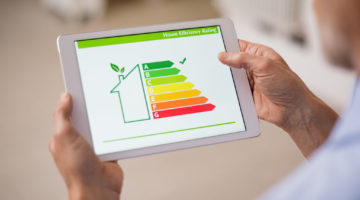
Getting registered on the Minimum Energy Efficiency Standards (MEES) exemption list is going to be top of many landlords To-Do list now that the new standards have come into effect, but finding reliable information on how exactly to go about it seems to be nearly impossible. That’s why we sat down with a room of experts to grill them on exactly how exemptions are defined and applied for.
This article is focused on non-domestic properties. Although both types of exemption are registered on the same system (the Private Rented Sector Exemption Register), there are quite different rules for each. If you’re letting a domestic dwelling and are keen to get an exemption the article is available here.
Do the MEES apply to my property?
Unlike in the domestic sector, where every single privately let property in England and Wales is covered by the legislation, the non-domestic side of MEES has a few types of let that are not covered. The following is a list for which no official exemption has to be sought:
-
- Properties rented with leases lasting 99 years or more
-
- Properties rented with leases lasting 6 months or less
- Properties that are do not require an EPC:
- Listed or officially protected buildings where the minimum energy performance requirements would unacceptably alter it
- A temporary building only going to be used for 2 years or less
- Buildings used as a place of worship or for other religious activities
- Industrial sites, workshop or non-residential agricultural buildings that doesn’t use much energy (this generally amounts to including any warehouse space that had neither an office or a heating system)
- Any detached building with a total floor space under 50 square metres
- Any due to be demolished by the seller or landlord and they have all the relevant planning and conservation consents
Can I get on the MEES exemption register (Private Rented Sector Exemption Register)?
The MEES state that any qualifying rented property must have an EPC rating of at a least an E or above. As set out in the non-domestic MEES regulations, there are several ways to qualify for the Private Rented Sector Exemption Register,. Unless we’ve indicated otherwise, all of the below exemptions are valid for 5 years from the date of issue:
-
- A recommended wall insulation measure would have a negative impact on the building
-
- All relevant improvements have been made and the property remains below an E
-
- The property is below an E and there are no improvements which can be made
-
- A recommended energy efficiency improvement does not meet the seven year payback rule
-
- Consent to an energy efficiency improvement was refused or made subject to unreasonable conditions – in this case the exemption ends after either the 5 year limit or when the non-consenting tenancy ends (whichever happens first).
-
- The installation of specific energy efficiency measures will devalue the property by more than 5%
- You have recently become a landlord under circumstances that qualify the property for an exemption – this is only a 6 month exemption, after which time you are required to be MEES compliant. It’s effectively a grace period for getting the appropriate work done.
What is the non-domestic MEES exemption process?
Registering a non-domestic MEES exemption is actually significantly easier than for a domestic dwelling. Exemptions are made on a self-certification basis here. For each different qualifying exemption there is different documentation required, though all of them require a full address and a valid EPC for the property.
A recommended wall insulation measure would have a negative impact on the building
- The written opinion of a relevant expert that the property can’t be improved to an E rating because a recommended wall insulation measure would have a negative impact on the property
All relevant improvements have been made and the property remains below an E
- A recommendation report that shows any energy efficiency improvement recommended for the property. This could be an EPC report, a report prepared by a surveyor, or a Green Deal report.
- Details of all recommended energy efficiency improvements which have been made at the property, including the date of installation.
The property is below an E and there are no improvements which can be made
- A recommendation report that shows that no improvements can be made. This could be an EPC report, a report prepared by a surveyor, or a Green Deal report.
A recommended energy efficiency improvement does not meet the seven year payback rule
- Three quotes from qualified installers for the cost of purchasing and installing the energy efficiency improvement
- Confirmation that you are sure that the improvement does not meet the seven year payback rule, including the calculations made to show this
Consent to an energy efficiency improvement was refused or made subject to unreasonable conditions
- Evidence that consent for an energy efficiency improvement was required and that this was asked for, and that consent was refused or granted subject to unreasonable conditions
The installation of specific energy efficiency measures will devalue the property by more than 5%
- A report from an independent RICS surveyor that provides evidence that the installation of a relevant measure would devalue the property by more than 5%
You have recently become a landlord under circumstances that qualify the property for an exemption
- The date that you became the landlord
- To explain which of the qualifying circumstances apply
If you have any questions or enquiries about MEES or how to get on the Private Rented Sector Exemption Register, please fill out the form below and one of our experts will be in touch.
Think we missed something? Do you have a different opinion?
Comment below to get your voice heard…













One Comment